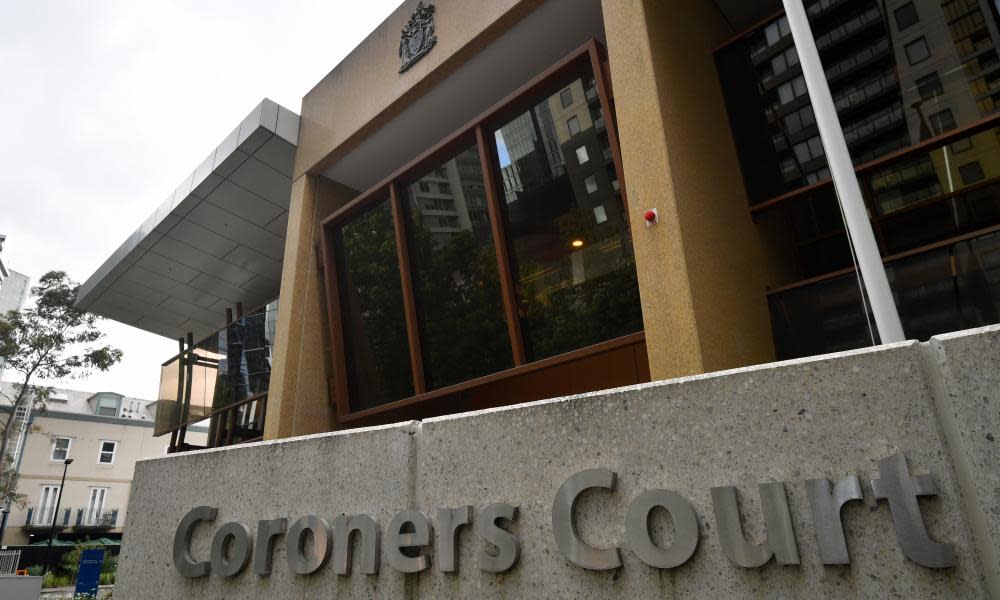‘Incredibly concerning’: new study highlights policing failures in deaths of Indigenous women by domestic violence

A “damning” new study of the deaths of more than 150 First Nations women at the hands of their partner or former partner has found patterns of policing failures, with the lead researcher saying most were preventable.
The study by Monash University examined 151 coronial court investigations and inquests of First Nations women and girls who were killed by intimate partner violence over a 20-year period.
The youngest was in her teens, while the oldest was in her 60s. The average age at the time of death was 35.
The report found that 154 children lost their mothers from the deaths, while 39 children were recorded as having witnessed the violence or homicide. At least 41% of the women were mothers, while seven women were pregnant at the time of their deaths.
The director of the Monash Indigenous Studies Centre, Prof Kyllie Cripps, said the findings highlight the vulnerability of Indigenous women to intimate partner homicides and said that most of the deaths were preventable.
“It’s incredibly concerning that you’re looking at cases over two decades that there is these consistent patterns of treating these cases less seriously and of not investigating as they should.”
“No one’s untouched, you’re not going to escape this if you’re a teenager and you’re not going to escape this if you’re in your 50s or 60s… it’s damning,” the Palawa women said.
“When you look at these 151 deaths, as a whole, you begin to see the patterns. You begin to appreciate the enormity of the problem but also the ways in which these women have survived only to then die.”
Prof Cripps said there were clear patterns that emerged when she identified how women were killed and how police and the justice system responded, with a number of cases identifying significant delays in police responding to their calls.
Sign up for Guardian Australia’s free morning and afternoon email newsletters for your daily news roundup
“Calls about domestic violence are being categorised as not high priority. They’re being characterised as welfare checks,” Prof Cripps said. “It was startling to see some of the responses of police … It’s not until hours later that finally a police car gets sent … and the consequences are that the victim has passed.”
More than 60% of the women died from blunt force trauma during prolonged assaults.
Prof Cripps said there needed to be accountability and acknowledged police are grappling with how to address systemic racism.
“When these women reach out for help, we need to actively respond to provide them safety. That’s providing the women’s refuge space. It’s providing the AVOs or DVOs that they’re asking for … It’s about following through on charges on breaches of those orders.
Related: Queensland police misidentify domestic violence victims as attackers, inquiry told
“That’s what we need to be doing and this is what Indigenous women have been asking for decades.
The New South Wales government on Wednesday will announce $20m in joint funding with the commonwealth for programs aiming to halve the rate of family violence against First Nations women and children by 2031.
“It’s extremely important that First Nations people are at the very, very centre of developing solutions to reduce domestic family and sexual violence,” NSW prevention of domestic violence minister, Jodie Harrison, said.
The chief executive of the Wirringa Baiya Aboriginal Women’s Legal Centre, Christine Robinson, said a focus in the programs on early intervention would change the trajectory for Aboriginal women, children and families.
“Our initiatives will include support for Aboriginal men’s healing, cultural connection, and addressing socioeconomic needs; including residential therapeutic healing on country and child-centred support and services for children and young people who have experienced violence or abuse with all work undertaken to be trauma informed,” she said.
• In Australia, the crisis support service Lifeline is 13 11 14. If you or someone you know is impacted by sexual assault, family or domestic violence, call 1800RESPECT on 1800 737 732 or visit www.1800RESPECT.org.au. In an emergency, call 000. International helplines can be found via www.befrienders.org.

 Yahoo News
Yahoo News 